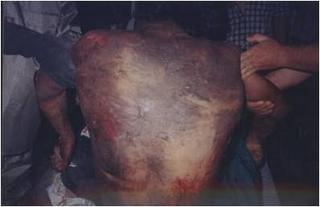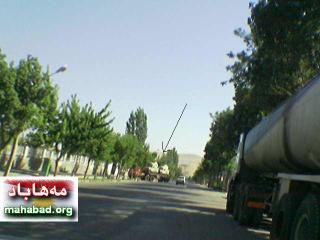
Today we celebrate the 60th anniversary of the establishment of the PDKI.
The Democratic Party of Iranian Kurdistan (PDKI) was founded in Mahabad, Iran, in August 16, 1945. The PDKI actually replaced the " Komalay Ziyanaway Kurd " (Council of Kurdish Resurrection) which had been formed three years earlier. Just 159 days after its foundation, i.e. in January 22, 1946, the Party, availing itself of expedient circumstances in a section of Iranian Kurdistan, established the " Republic of Kurdistan ", usually referred to by historians as the " Republic of Mahabad ", the reason being its choice of Mahabad as the capital. The " Republic of Mahabad " lasted not more than 11 months. Following a pact signed by the Iranian central government and the ex-Soviet Union, the Iranian army launched a vast offensive into the region, destroying the " Republic " in December 1946. The " Republic " having collapsed, a great number of PDKI leaders were imprisoned, of whom 20 people including Qazi Mohammad, head of the Party and president of the Republic, M.-Hossein Seyfi-Qazi, minister of Defense, and Abulghassem Sadri-Qazi, a member of the Iranian Parliament from Mahabad, were hanged in the capital of the Republic, and the others in Saqez and Buckan.In less than two years after the collapse of the Republic, the PDKI started its political and organizational activities anew, striking roots in most parts of Iranian Kurdistan, which was due mainly to the Kurdish people's desire to join the struggle aimed at fulfilling the Party's aspirations and reviving the honor of the Republic of Kurdistan.Following the collapse of Dr. Mossadegh's government in 1953, when democratic rights and freedoms of the peoples throughout Iran were suppressed, the PDKI's activities came almost to a standstill. A great number of Party activists were either imprisoned or went underground, though they resumed their activities after a very short time. Two widespread police raids against the Party in 1959 and 1964 dealt heavy blows to its organization : some 300 Party activists were imprisoned, with an even greater number hiding away or fleeing Iran. Nevertheless, not having sunk into despair, the Party embarked on the task of reviving its organization.Its activities picked up such a speed that in 1967-68, a large number of its members and high ranking cadres started an armed insurrection - lasting 18 months - against the Shah's regime, a glorious deed which struck horror into the ruling circles. But as this armed movement lacked a safe rear zone, the Shah's regime managed somehow to crush it.The Kurdish people in Iranian Kurdistan and the PDKI played an active part in the Iranian people's uprising against the Shah's dictatorship. A group of PDKI leaders who were living in exile either in neighboring countries or in Europe, returned to Iran before the collapse of the monarchy, actively participating in the uprising of the Kurdish people and assuming the status of leadership in the movement.The uprising of the Iranian peoples having succeeded, the PDKI declared its public activities in a meeting held in Mahabad which was attended by representatives from all parts of Iranian Kurdistan. Despite the Party's sincere endeavors to settle its differences over the democratic rights and freedoms of the Kurdish people peacefully with the newly established regime in Tehran, the rulers in Tehran took no account of the responsible efforts made by the PDKI. Instead, following the " fatwa "issued by ayatollah Khomeini against the Kurdish people, the Iranian armed forces ruthlessly embarked on a widespread offensive against the Kurdish population, shelling and bombing villages and towns of Kurdistan. The PDKI had to resort to armed resistance, a valiant deed which, despite all ebbs and flows, has been going on till today. On 13 July 1989, Dr. Abdul Rahman Ghassemlou, Secretary-general of the PDKI, and two of his collaborators, were assassinated in Vienna (Austria) as they were negotiating with envoys of the Iranian regime, at the latter's invitation, for a peaceful solution to the Kurdish issue in Iran. Dr. Ghassemlou's successor, Dr. Sadegh Sharafkandi met with the same fate on 17 September 1992 in Berlin where he had attended the Congress of the Socialist International. They all were victims of Iranian State terrorism.The PDKI has held 13 congresses. The 1st congress was convened in 1945, the 2nd in 1964, the 3rd in 1971, the 4th in 1980, the 5th in 1982, the 6th in 1984, the 7th in 1985, the 8th in 1988, the 9th in 1992, the 10th in 1995, the 11th in 1997, the 12th Congress in 2000 and the 13th Congress in 2004.During the 20th Congress of the Socialist International held in the UN headquarters in New York (9-11September 1996), the PDKI was given the status of observer member. The highest body of the PDKI is its Central Committee composed of 21 permanent and 10 substitute members. The Central Committee has chosen 7 of its members as the Political Bureau, which include the Secretary-general and his assistant.
Main principles :
1- PDKI is the pioneer party of the people of Iranian Kurdistan, and together with the progressive forces all over Iran struggles to safeguard Iran’s independence, and establish a democratic regime in Iran to obtain the rights of the Kurdish people in Iranian Kurdistan to self-determination.
2- The long-term objective of PDKI is to establish a democratic socialist society.
3- The strategic motto of PDKI is the establishment of a democratic federal Iran and the attainment of Kurdish national rights in Iranian Kurdistan.
4- PDKI considers the oppressed nationalities of Iran as its strategic allies, and supports their national struggle to attain their national rights.
5- Support for the national-democratic struggle of Kurdish people in other parts of Kurdistan is the leading principle of PDKI.
6- PDKI supports the liberation struggle of all the people of the world, and supports peace and friendship of the people in all the countries.










